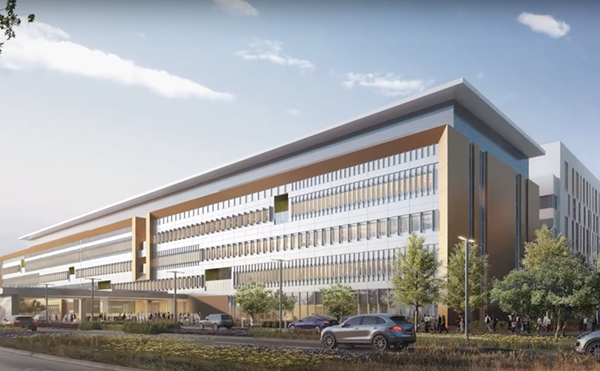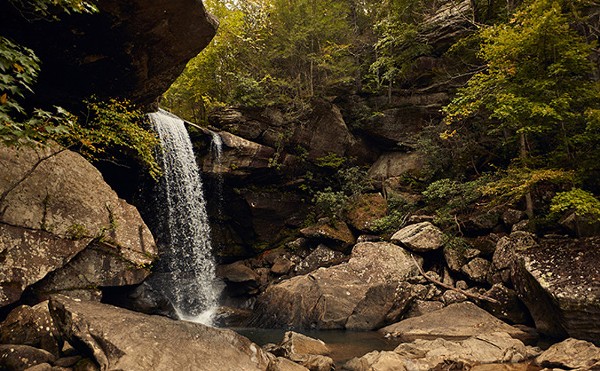I think about the future often, mostly because it represents a time during which I aspire to be alive.
That is an exciting prospect for many reasons, not the least of which is that I’m not finished with what I want to say to you people. So I’m hopeful that, despite a streak of cuts in public-education funding that is crippling our schools, people will still be able to read in this future. Otherwise, I might be working the field at a wind plant.
When discussed in the present, the future tends to exist in a vacuum of optimism, an abstract thing defined by whomever or whatever is talking about it. America used to be understood as the king of the future, a place where idealism and reality could actually abut at a given time. This country is still regarded as a place of advancement by some parts of the world — a thing that exists outside the loop of highway that surrounds your suburb — although the loose posse of criminals and industry whores in the Bush administration has kneecapped us these last 7 years, provoking an unnecessary war and unspeakable damage to the environment through the wiping out of 30 years of relatively progressive policy; offering billions in incentives to the companies that are benefiting from said policy rollbacks; leaving trillions owed to the Chinese and other world powers to pay for all of the above. In short, they are ushering us toward what some experts are calling the most devastating economic doom this country has ever known.
We’re at a real holy-shit moment in American history, and it seems singular, if only because we can no longer comprehend the future in a coherent — let alone optimistic — way.
We know we cannot continue consuming fossil fuels (read: oil and coal) at the current rate, because we will bankrupt our planet’s resources. However, we have political figures who refuse to take corrective action. This provides us with a clear view of the future, one that visionaries will work to prevent.
Just last week, Lt. Gov. Daniel Mongiardo was in Pikeville, which calls itself “a city that moves mountains,” an Orwellian reference to the machine-driven operation called mountaintop removal that has helped take jobs, water, unique ecosystems and a certain quality of life out of the Appalachian mountains while lining the pockets of Big Coal, an industry that then lines the pockets of public officeholders — to the tune of $20.2 million in federal elections since 1990.
“A lot of people look at mountaintop removal as a negative, but I see it as a positive,” Mongiardo said. “We need to stop apologizing for coal. We don’t want to defend mountaintop removal, but I want us to promote mountaintop removal, because we need flat land. We cannot have economic expansion without places to do things, and part of mountaintop removal is for places like hospitals, airports and different type of merchants.”
Statements like these offer little but despair for the future. Mongiardo, holder of the second-highest office in Kentucky, ignores data suggesting that his rhetoric is utterly untrue, and that’s likely because he perceives his constituency to be adopters of the same company-line myths about coal that he clearly is. And while it should be his job to cut through that and try to provide truth to Kentuckians, he’s instead intellectually lazy and unrepentantly positive about one of the most crippling industries in our state.
Multiple studies using U.S. Census data have shown that areas of extreme poverty are also the ones most heavily populated by mountaintop removal operations. According to the Citizens Coal Council, coal production in Appalachia rose 32 percent between 1987 and 1997. Over the same period, the number of mining jobs there dropped 29 percent.
Maybe Mongiardo could explain to Kentuckians (particularly those in the eastern hollows) how exactly hospitals, airports and different types of merchants will provide the region with such economic prosperity, for they are not at the moment. How many ex-miners now living on a government check will these merchants be able to employ? I was at the Wendell Ford Airport (built on a “flat” reclaimed MTR site) in Hazard a few weeks ago, and I saw one worker. How many ex-miners also happen to be nurses? Which of the workers at the Wal-Mart that was built a few years back on a reclaimed MTR site can afford to buy a flat-screen TV at their place of employment?
Low-rent jobs and machine-driven labor are the future that will be perpetrated by people like Mongiardo. That is far too coherent a vision for us to ignore.





